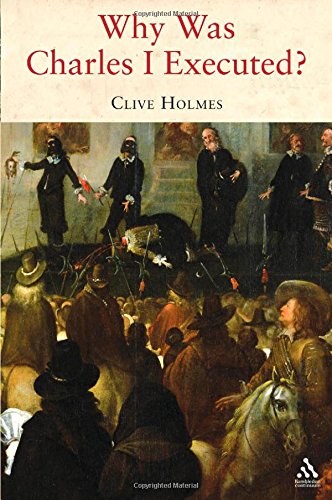

Most ebook files are in PDF format, so you can easily read them using various software such as Foxit Reader or directly on the Google Chrome browser.
Some ebook files are released by publishers in other formats such as .awz, .mobi, .epub, .fb2, etc. You may need to install specific software to read these formats on mobile/PC, such as Calibre.
Please read the tutorial at this link: https://ebookbell.com/faq
We offer FREE conversion to the popular formats you request; however, this may take some time. Therefore, right after payment, please email us, and we will try to provide the service as quickly as possible.
For some exceptional file formats or broken links (if any), please refrain from opening any disputes. Instead, email us first, and we will try to assist within a maximum of 6 hours.
EbookBell Team

4.3
38 reviews
The execution of Charles I in 1649, followed by the proclamation of a Commonwealth, was an extraordinary political event. It followed a bitter Civil War between parliament and the king, and their total failure to negotiate a subsequent peace settlement.
Why the king was defeated and executed has been a central question in English history, being traced back to the Reformation and forward to the triumph of parliament in the eighteenth century. The old answers, whether those of the Victorian narrative historian S.R. Gardiner or of Lawrence Stone's diagnosis of a fatal long-term rift in English society, however, no longer satisfy, while the newer ones of local historians and 'revisionists' often leave readers unclear as to why the Civil War happened at all.
In Why Was Charles I Executed? Clive Holmes supplies clear answers to eight key questions about the period, ranging from why the king had to summon the Long Parliament to whether there was in fact an English Revolution.